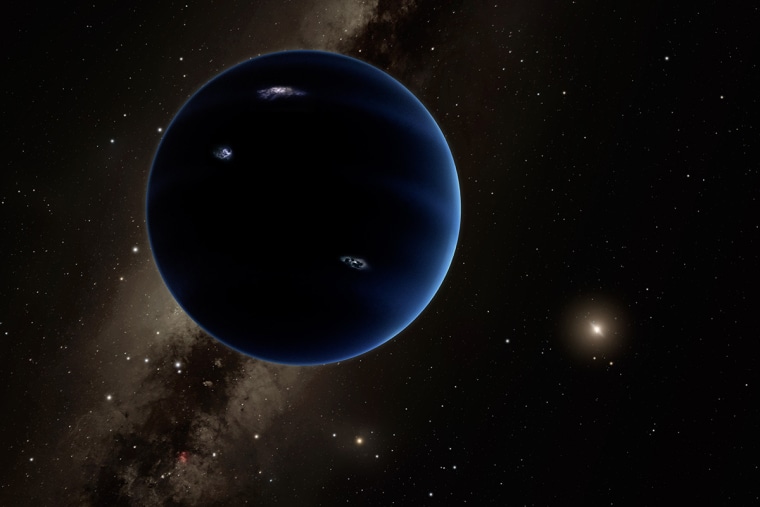Sad that Pluto isn't a planet anymore? Don't worry, Caltech researchers may have discovered a new planet lurking in the outer reaches of our solar system.
They're calling it "Planet Nine" for now. The planet, if it exists, has a mass 10 times that of Earth and takes between 10,000 and 20,000 years to orbit the sun.
Planet Nine has not actually been observed. Instead, evidence of the planet was discovered through mathematical modeling and computer simulations.
"Although we were initially quite skeptical that this planet could exist, as we continued to investigate its orbit and what it would mean for the outer solar system, we become increasingly convinced that it is out there," Konstantin Batygin, an assistant professor of planetary science at Caltech, said in a statement.
The research from Batygin and Mike Brown, whose discoveries led to the downgrading of Pluto to a "dwarf planet," was published Wednesday in The Astronomical Journal.
It all started in 2014 with the investigation of 13 objects in the Kuiper Belt — a region of the solar system beyond Neptune filled with comets and other icy bodies, as well as dwarf planets including Pluto.
Six of those objects had an orbit that suggested they were circling some distant object, which the researchers now believe is the ninth planet in our solar system. Although they believe they know the planet's orbit, they hope to actually locate it using a large telescope.
"This would be a real ninth planet," Brown said. "There have only been two true planets discovered since ancient times, and this would be a third. It's a pretty substantial chunk of our solar system that's still out there to be found, which is pretty exciting."
